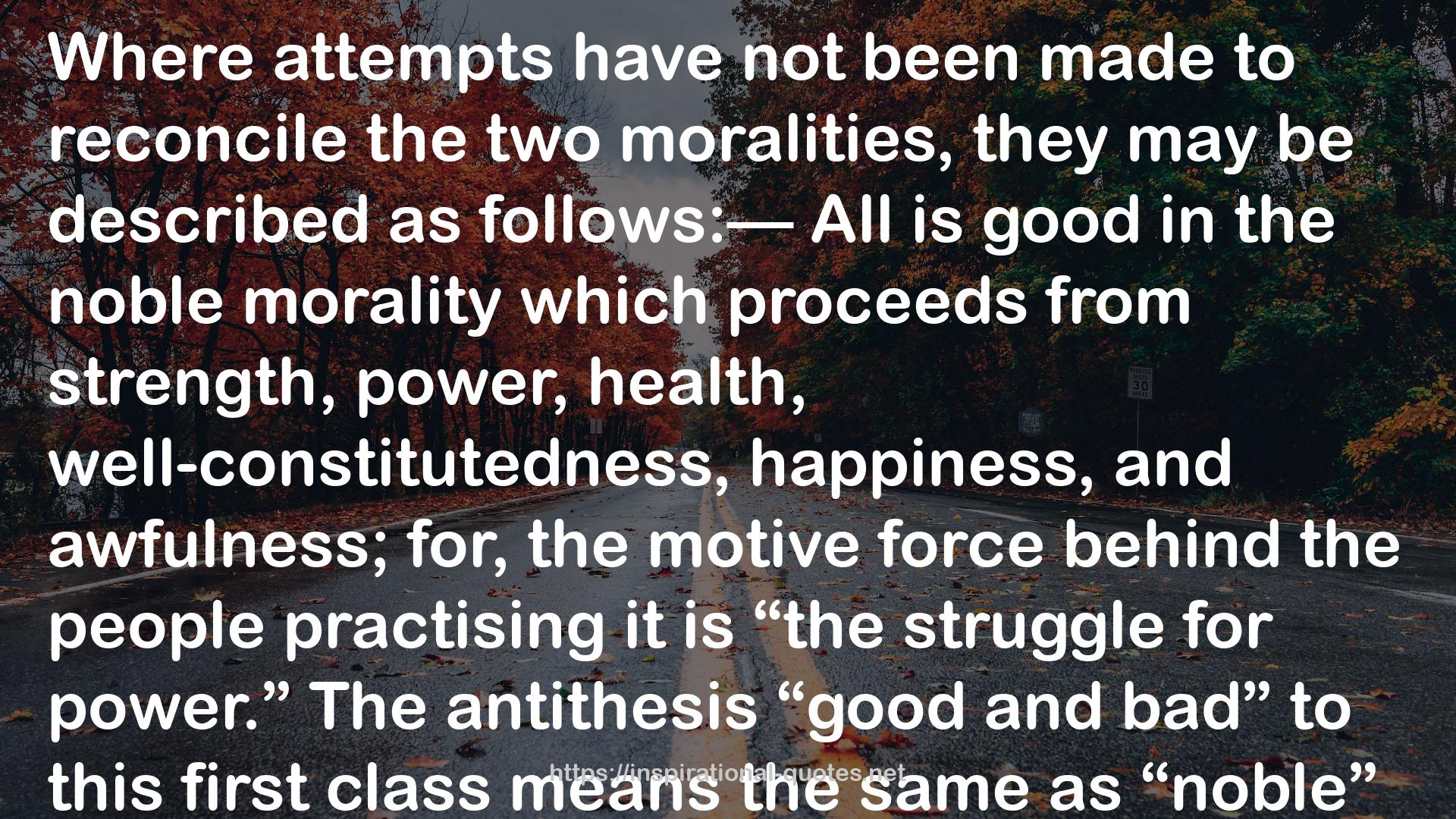" Where attempts have not been made to reconcile the two moralities, they may be described as follows:— All is good in the noble morality which proceeds from strength, power, health, well-constitutedness, happiness, and awfulness; for, the motive force behind the people practising it is “the struggle for power.” The antithesis “good and bad” to this first class means the same as “noble” and “despicable.” “Bad” in the master-morality must be applied to the coward, to all acts that spring from weakness, to the man with “an eye to the main chance,” who would forsake everything in order to live.
With the second, the slave-morality, the case is different. There, inasmuch as the community is an oppressed, suffering, unemancipated, and weary one, all that will be held to be good which alleviates the state of suffering. Pity, the obliging hand, the warm heart, patience, industry, and humility—these are unquestionably the qualities we shall here find flooded with the light of approval and admiration; because they are the most useful qualities —; they make life endurable, they are of assistance in the “struggle for existence” which is the motive force behind the people practising this morality. To this class, all that is awful is bad, in fact it is the evil par excellence. Strength, health, superabundance of animal spirits and power, are regarded with hate, suspicion, and fear by the subordinate class. "
― Friedrich Nietzsche , The Works of Friedrich Nietzsche
